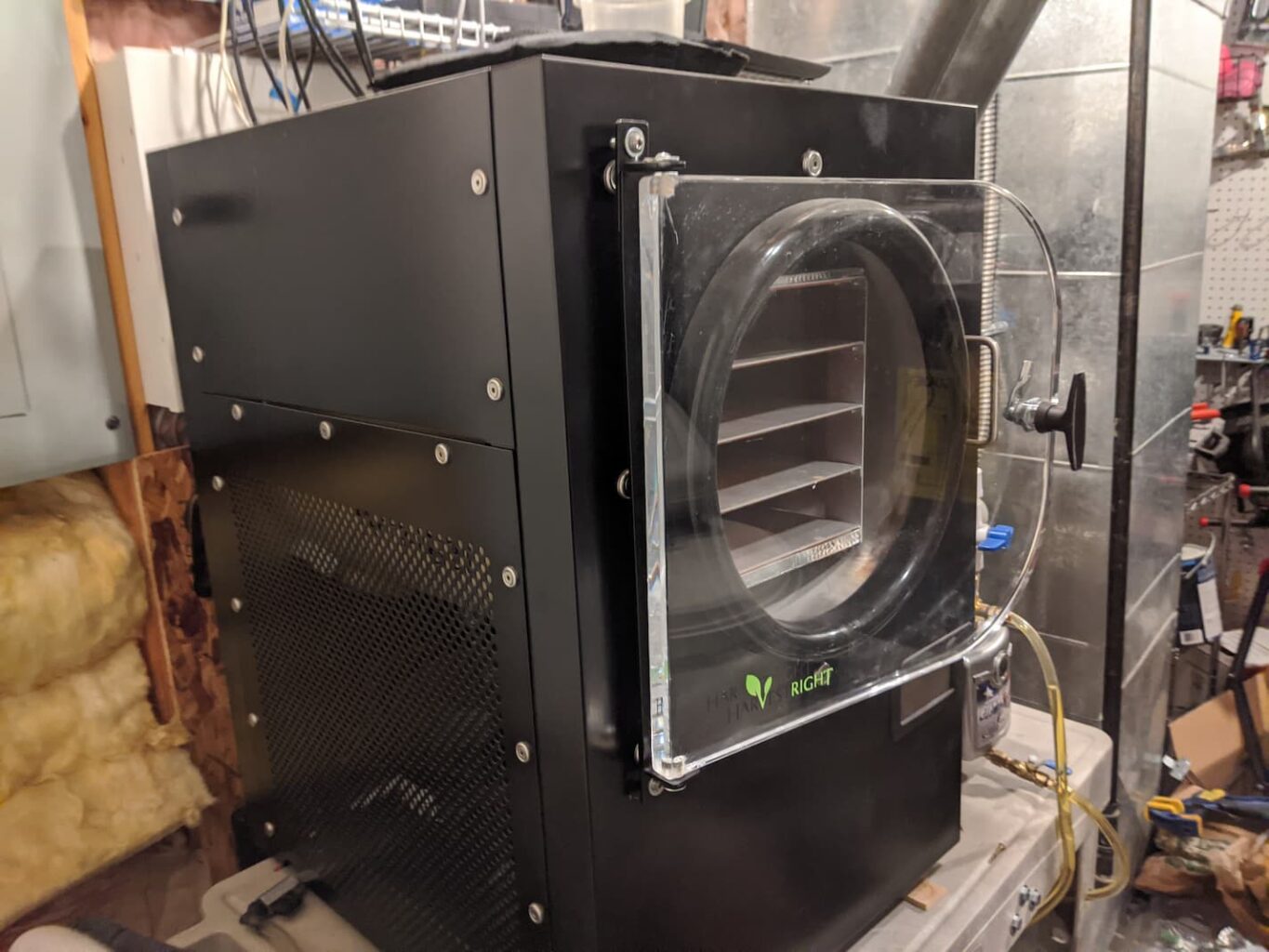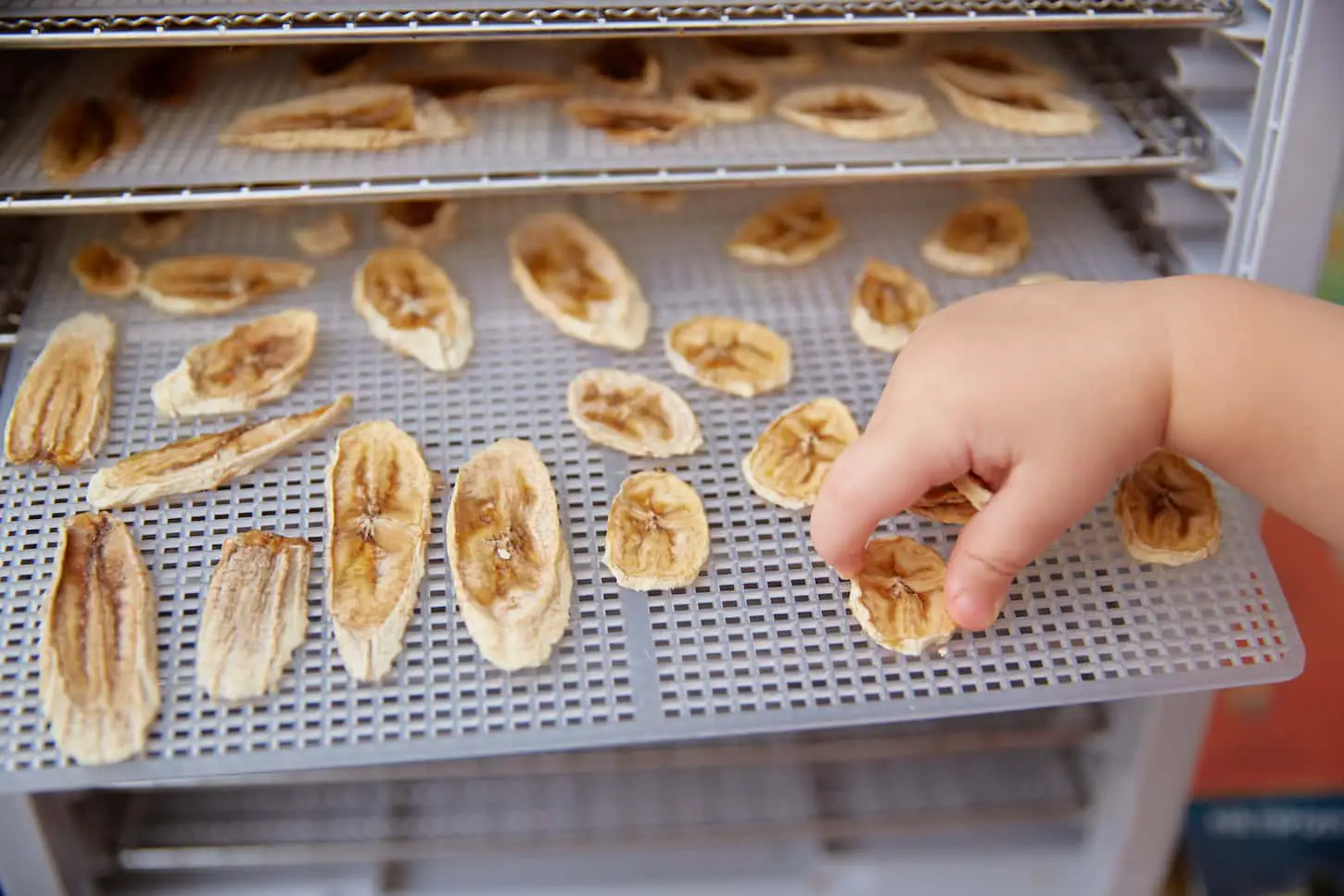Freeze drying is an excellent way to preserve perishable food for a long time. However, freeze dryers are a significant investment, so it’s important to know whether it’s worth it or not to buy one.
A home freeze dryer is worth buying if you want to preserve large amounts of perishables easily and if you have the money to spare for it. Although they are costly, they are worth it because they are made of robust, high-quality materials and don’t require much effort to use.
The rest of this article will discuss freeze driers in greater detail. So, if you want to learn more about them and whether you should buy one or not, be sure to keep reading.

Are Freeze-Dryers Worth it?
Freeze dryers are undoubtedly worth it if you want to preserve a lot of food without losing much quality. Although freeze-drying preserves and removes the water content, the food manages to keep most of its original nutrients after the process has been completed.
However, the main thing to consider is the price tag. Most freeze-dryers are in the thousands of dollars category, so it’s more worth it if it will be used frequently or if you freeze-dry a lot of food.
If you only want to preserve a small portion of food once every few months or once every year, a freeze dryer likely won’t be worth the money (unless you’re okay with the price, of course)!
How to Know if a Home Freeze Dryer is Right for You
A home freeze dryer may be right for you if you:
- Go camping/backpacking frequently
- Want to preserve food without losing many nutrients
- Want to have a supply of perishable food in case of an emergency
- Have the money to invest in quality food storage machinery
Now, let’s take a look at the above instances in greater detail.
If you go camping/backpacking frequently
Since freeze-drying preserves food that you wouldn’t usually bring camping, it would be worth it to buy one for this purpose. Not only can fruits and vegetables be freeze-dried, but meat and poultry as well.
So, bringing freeze-dried food on a camping trip will ensure you can easily get all the nutrients you need.
If you want to preserve food without losing many nutrients
According to a study by Iowa State University, freeze-drying is superior to other methods of food preservation, including dehydration.
This is primarily because freeze-dried foods remain nutritious and are practically the same as their fresh counterparts. The main difference is the water content, but this shouldn’t be an issue once you drink enough water.
If you want to have a supply of perishable foods in case of an emergency
Many people like to store nonperishables in their kitchens or pantries in case of emergencies. So, why not store some (freeze-dried) perishables, too? Having a freeze-dryer allows you to freeze-dry whatever you want and store it for future use when you may need it.
As long as everything is stored in sealed, airtight containers, food could last years in your pantry in case you ever need it.
If you have the money to spare
I mentioned it briefly earlier, but the cost of freeze-dryers is one of the biggest turnoffs for many people.
Of course, there’s no doubt that they are costly, but they are worth it if you can get a lot of use out of them. They cost so much because they are highly efficient machines that need to work as safely and accurately as possible.
The parts that make up a freeze-dryer are high-quality and durable, so you really are getting value for your money.
To see an in-depth breakdown of why freeze dryers are so expensive, be sure to check out this informative article I wrote that explains it all in greater detail: Why are Freeze Dryers So Expensive? Are They Worth it?
So, even though you’ll have to spend a lot of money on a freeze-dryer, at least you know that it will do the job safely and adequately.

What is the Life Expectancy of a Freeze Dryer?
Freeze-dryers last at least 10-15 years on average. However, some may not last this long, while others can last much longer. The life expectancy depends on the usage, care, and quality of the machine. If you don’t use it too often, it will likely last longer than if it was used more frequently.
Luckily, most home freeze dryers require little maintenance. However, they tend to come with a vacuum pump, and it’s essential to maintain this. Since the vacuum pump contains oil, you’ll need to maintain it by draining and adding new oil as frequently as necessary.
If you don’t, the pump may get damaged, which can decrease the quality and life expectancy of the freeze-dryer.
I’ve got an article in the works on how long freeze dryers last, including all of the parts. I’ll try to remember to come back and link it here, otherwise, be sure to search the site for it!
Do Freeze Dryers Use a Lot of Electricity?
Small freeze-dryers can cost between $1.25 and $2.80 for electric use every day, and larger freeze-dryers could cost between $2 and $3 for electricity every day. So, they use a decent amount of electricity, but it’s nothing crazy.
So, if planning on using your freeze-dryer frequently, expect to spend anywhere from $30-$85 a month. That’s on top of the cost of the machine itself.
In addition to electricity usage, freeze-dryers tend to be quite loud when in use. Since they often need to be on for 24+ hours, keep this in mind if you have young children who may have trouble sleeping due to the noise at night.
If you have the option, it’s a great idea to keep your freeze-dryer in a basement or unused so that you don’t have to deal with the noise so much!
Note: a lot of other websites will tell you to keep the freeze-dryer in the garage, but if you live in an area with extreme temperatures and your garage isn’t temperature-regulated, that can impact your freeze-dryer’s reliability and lifespan. Don’t keep it in your garage!
Are Freeze-Dryers Better Than Dehydrators?
Generally, freeze dryers are better than dehydrators because they keep most of the food’s nutrients. Dehydrators strip food of vitamins A and C due to the heat and air involved in the process, and dehydrated food also has a shorter shelf life than freeze-dried food.
The main reason dehydrated food has a shorter shelf life is that there is more water leftover in dehydrated food than in freeze-dried food.
Dehydrated food can last anywhere from a few months to five years (on average), but freeze-dried food is capable of lasting up to 25 years if stored correctly! Why is this? It’s mainly because freeze-drying removes around 95% of water, and water is the main cause of food spoilage.

Key Takeaways and Next Steps
A home freeze dryer is worth it if you’re looking for a reliable, efficient, and safe way to preserve perishables. Although it’s an expensive initial purchase, it’s worth it for the quality of the machine and ease of use!
For more information about freeze-drying, check out this great article: How to Freeze-Dry and Store Your Favorite Foods: Guide with Pictures.
Resources
It’s important to learn from your own experience, but it’s also smart to learn from others. These are the sources used in this article and in our personal research to be more informed as homesteaders.
- Geiger, Marlene. “Freeze Drying – A New Option for Home Food Preservation.” Iowa State University, 27 July 2021, blogs.extension.iastate.edu/answerline/2021/07/27/freeze-drying-a-new-option-for-home-food-preservation/
- “Introduction to Food Dehydration.” MU Extension, extension.missouri.edu/publications/gh1562. Accessed 11 Feb. 2022.
- McHugh, Tara. “Freeze-Drying Fundamentals.” Institute of Food Technologies, 1 Feb. 2018, www.ift.org/news-and-publications/food-technology-magazine/issues/2018/february/columns/processing-freeze-drying-foods
- “Nutrition of Freeze-Dried vs. Raw Fruits and Vegetables | Go Ask Alice!” Columbia University, goaskalice.columbia.edu/answered-questions/nutrition-freeze-dried-vs-raw-fruits-and-vegetables. Accessed 11 Feb. 2022.
- Utah State University. “Freeze Drying FAQ for Extension Professionals.” Utah State University, 10 May 2021, extension.usu.edu/preserve-the-harvest/dev/freeze-drying-faq-for-extension-professionals
